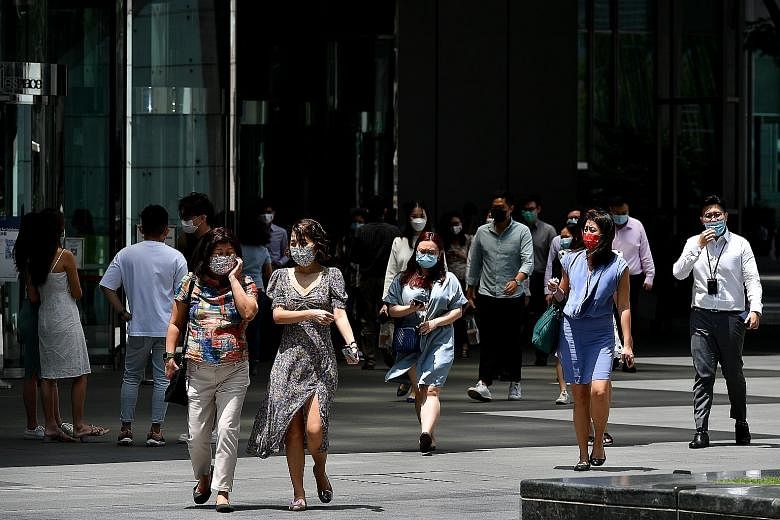SINGAPORE - Middle-income workers in certain industries could have structured wage progression set out if the National Trades Union Congress (NTUC) succeeds in its push to expand the progressive wage model (PWM) to more sectors.
Labour chief Ng Chee Meng said on Thursday (Feb 18) that NTUC is in discussions with employers in strata management, solar technology - both of which employ workers not typically seen as low-wage - and pest management on how to implement the model, which typically sets out minimum pay and training requirements for lower-paid workers at different skill levels.
It is also in "informal discussions" on a new approach to the model - setting out salary and skill ladders for vocations, rather than industries, said Mr Ng during a virtual media briefing to lay out the labour movement's priorities for the year ahead.
The occupations that could be covered include clerks, general machine operators and electricians, which have a common nature across industries, he said.
He would not be drawn into providing further details but said that the informal discussions are with some tripartite partners and he hopes to make some progress within the next three to five years.
"There is of course still quite a lot of debate in society, even in Parliament about progressive wage and minimum wage. While these debates can continue, NTUC will focus on action and focus on implementing PWM across more sectors, in two different ways - faster implementation and wider implementation," he said.
This comes two days after Deputy Prime Minister Heng Swee Keat said in the Budget speech on Tuesday that the Government's aspiration is for every sector of the economy to have some form of progressive wages.
The PWM, first set out by NTUC in 2012, is mandatory in the cleaning, landscaping and security sectors, covering some 80,000 workers. It will become mandatory for the lift and escalator maintenance sector in 2022.
The Tripartite Workgroup on Lower-Wage Workers, which is chaired by Senior Minister of State for Manpower Zaqy Mohamad and involves representatives from employers, unions and the Government, is studying how the PWM can be extended to more sectors. It aims to provide a progress update by the middle of this year, and give its recommendations by early next year.
Mr Ng, who is NTUC secretary-general, said the labour movement hopes that recommendations for PWMs in food services and retail trade will be released by this year, and implemented within two to three years. This could benefit about 70,000 workers.
NTUC has been pushing for a PWM in food services since 2018, but there have been challenges getting buy-in due to the wide range of types of establishments in the industry, from hawker centres to Michelin-starred restaurants.
A PWM for the waste management sector, which could benefit up to 3,000 workers, is also in the works after being mooted by NTUC last year.
As for the three potential industries of strata management, solar technology and pest management, Mr Ng said the idea is to implement the philosophy of the PWM to even middle-wage workers.
A PWM in strata management, for example, could help more than 5,000 workers, the majority of whom are not low-wage but whose wages stagnate due to the tendency for service buyers like management corporations to choose the cheapest service provider whenever contracts are up for renewal.
In solar technology, meanwhile, the aim is to provide a career development and wage progression plan for people entering the sunrise industry.
Mr Ng also said that as the desire for social justice has grown stronger in recent years, and the labour shortage in Singapore becomes more apparent, it is becoming easier to reach consensus with employers on the need to use more technology and upskill workers accordingly. This raises productivity and leads to better business outcomes.
"When you have better business, what we ask for is fair treatment of our workers to give them better wages and put them into a PWM where there's more certainty that this structure of movement forward will be consistent over time," he said.
Mr Muhammad Furqan Shamsudin, founder of local solar technology company 10 Degree Solar, said he is supportive of NTUC's goal to implement the PWM in his industry.
"The PWM scheme will certainly boost the entry of local workers in the solar industry which will help shift our reliance on the supply of foreign manpower that is volatile and inconsistent," he said.
"Although cost of projects may go up, the industry as a whole must work together not based on 'the lowest-cost approach' which is usually the case in Singapore. Long-term survival in the solar industry especially in these challenging times is crucial."

